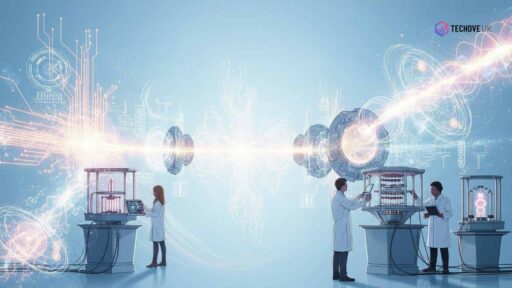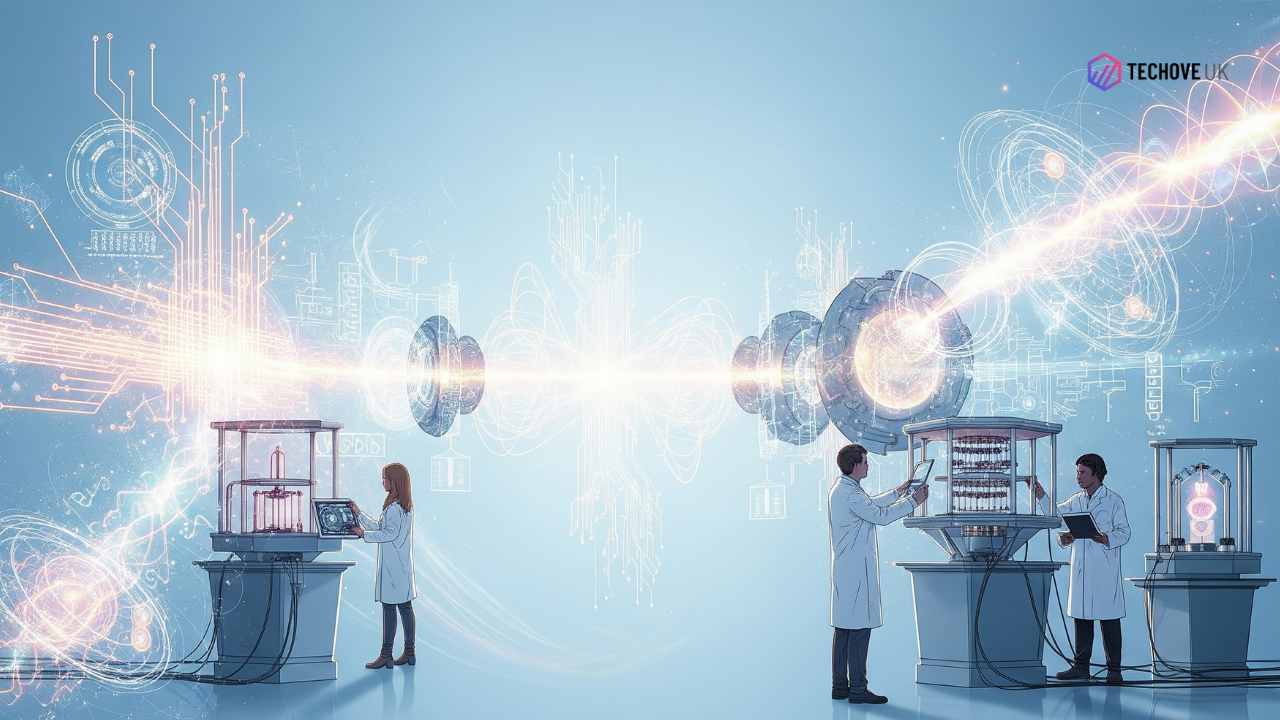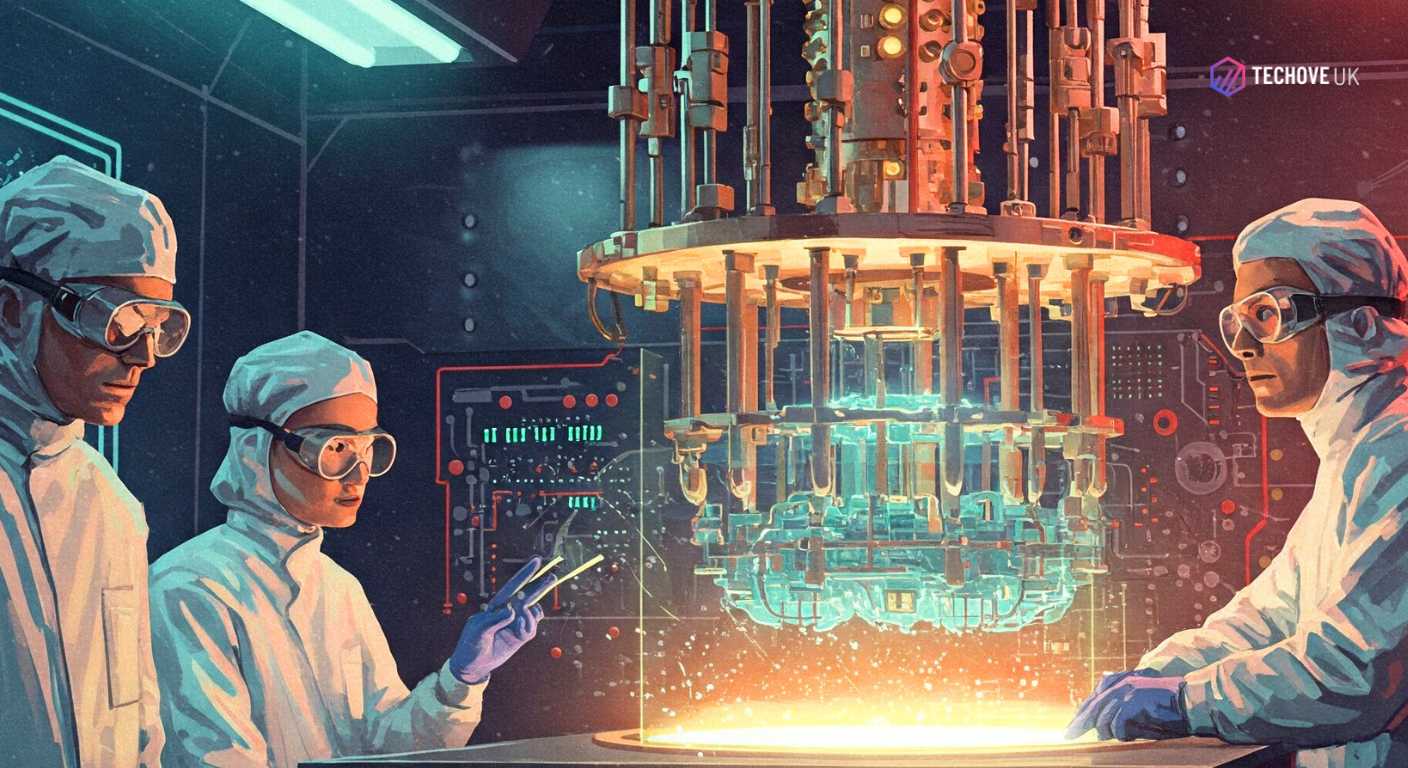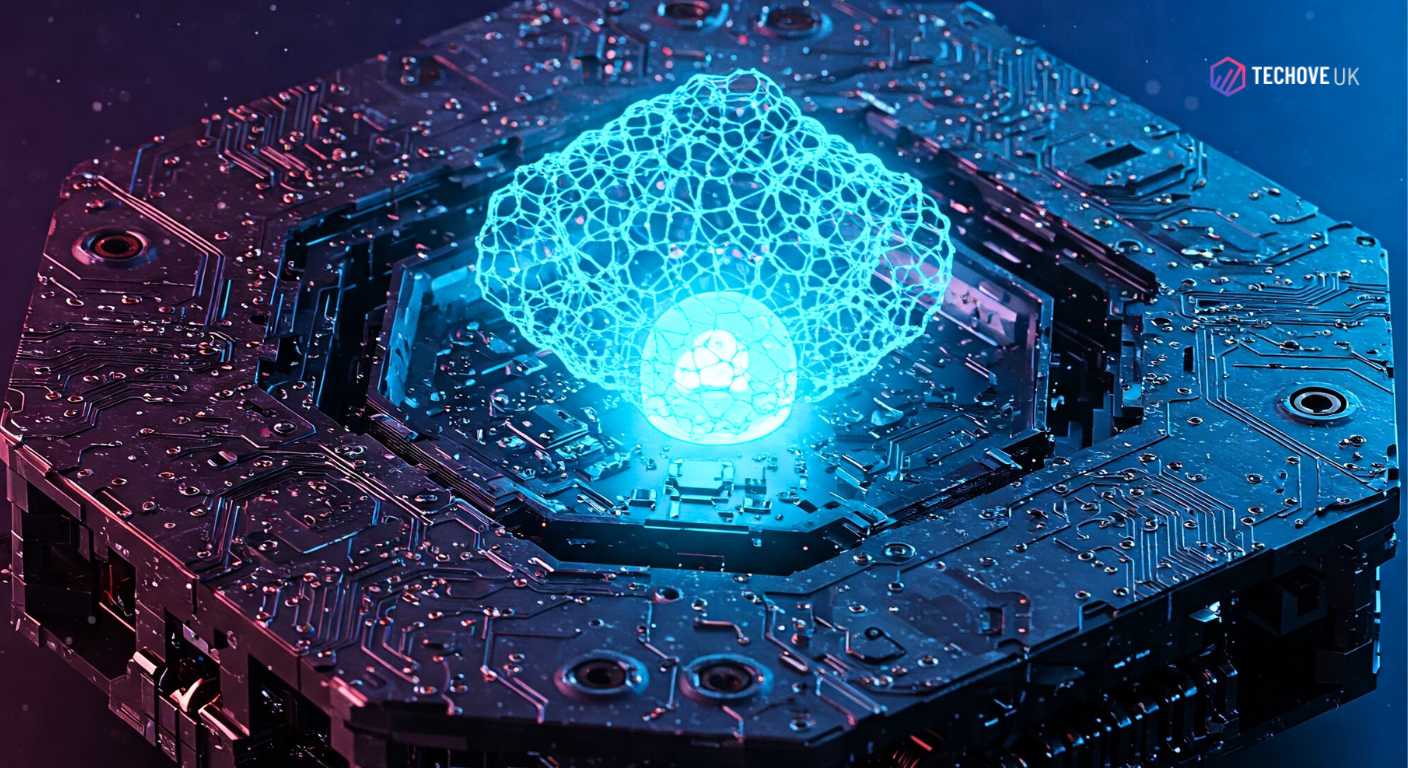The Quantum Future: Your Guide to What’s Coming Next in the UK
What Will Be The Future Of Quantum Mechanics? Not just about flying cars or robots, but about a whole new kind of science that could change our world in ways we can barely imagine? This new science is called quantum mechanics, and it’s not just a far-off dream. It’s happening right now, especially here in the United Kingdom.
“The disruptive potential of quantum technology will make the change of the Internet era look like a small bump in the road!” – Kevin Coleman, Technologist
You might have a lot of questions. In this guide, we’re going to answer them. We’ll explore this amazing topic through simple ideas and stories. Whether you’re a professional in your field or just curious about tomorrow, you’ll walk away understanding the incredible future that is just around the corner. Let’s dive in!
Answering Your Quantum Questions
Before we go deep, let’s answer some of the biggest questions people have about quantum mechanics.
What is the future of quantum mechanics?
The future is huge! It’s moving from books and labs into the real world. It will give us super-powerful computers, new medicines, and ways to solve problems we can’t solve today.
Does quantum have a future?
Absolutely. The UK government is investing billions of pounds into it because they know it’s the next big thing in technology.
Is quantum physics good for the future?
Yes! It will help us fight climate change, find cures for diseases, and create amazing new materials for everything from phones to spaceships.
Is quantum mechanics a growing field?
It’s one of the fastest-growing fields in science and technology. It’s creating thousands of new jobs for scientists, engineers, and many other experts.
Is quantum machine learning the future?
Many experts think so. It could make Artificial Intelligence (AI) thousands of times smarter, leading to breakthroughs we can only dream of.
Can quantum mechanics change reality?
In a way, yes. It won’t change the laws of nature, but it will totally change our daily reality with new technologies that seem like magic today.
Does our brain use quantum mechanics?
That’s a cool idea! Most scientists think our brains work using normal biology and chemistry. But research is still being done, so who knows for sure?
Can something exist in two places at once?
Believe it or not, in the tiny quantum world, yes! Tiny particles can be in multiple places at the same time. This strange fact is what makes quantum computers so powerful.
Why is quantum mechanics important for future advancement?
Because it gives us a new set of tools to build a better world. It’s a key that unlocks a new level of science.
What is the future of quantum computing in 2030?
By 2030, we expect to see quantum computers start to solve real-world problems for businesses, especially in medicine and finance. They will be important tools used by experts everywhere.
What is Quantum Mechanics Anyway? A Peek into the Secret Code
So, what is this quantum mechanics we keep talking about? Think of it like the universe’s secret code. It’s the set of rules for how tiny things, like atoms and the particles inside them, behave. These rules are very different and much stranger than the rules we see in our everyday world.
Your phone or computer uses ‘bits’ to think. A bit is like a light switch: it can only be ON or OFF. That’s a 1 or a 0. It’s simple and it works well.
But a quantum computer uses something called a qubit. A qubit is much cooler. Imagine that light switch is now a spinning coin. While it’s spinning, is it heads or tails? It’s kind of both at the same time! A qubit can be ON, OFF, or both at once. This “both-at-once” state is called superposition, and it’s a quantum superpower.
👉🏻Related Post: Why Should I Learn Quantum Mechanics? Unlock the Secrets
The Super-Brain: What is Quantum Computing?
Because qubits can be in many states at once, a Quantum Computing machine can think in a totally new way. It can explore millions of possibilities at the same time.
Imagine you lost your keys in a giant maze. A normal computer would be like a person walking down every single path, one by one, until they found the keys. This could take a very, very long time.
A quantum computer would be like being able to check every path in the maze at the exact same time. You’d find the keys almost instantly. This is why we are so excited about Quantum Advantage. This isn’t just about being a little faster; it means a quantum computer can do useful things that a normal computer would find impossible to solve, even if it ran for a billion years.
The UK is working hard to be a world leader here. The government has created places like the National Quantum Computing Centre in Harwell. This is a special place where the smartest people come together to build these amazing machines and figure out how we can use them to help everyone.
The Biggest Challenge: Keeping the Bubbles from Popping
This quantum superpower comes with a big challenge. The quantum world is very, very delicate.
Qubit Coherence is the biggest hurdle. Think of a qubit as a perfect, shiny soap bubble. As long as the bubble is floating, the quantum computer can do its work. But the tiniest little thing—a small change in heat or a tiny bit of vibration—can “pop” the bubble. This is called decoherence, and it makes the computer lose all its information.
So, how do we protect these quantum soap bubbles? The answer is a clever idea called Quantum Error Correction (QEC).
Imagine you’re writing a super important story. To make sure there are no mistakes, you have a friend look over your shoulder and fix any spelling errors as you type. QEC is like a super-fast, super-smart spellchecker for a quantum computer. It uses extra qubits to constantly check for errors and fix them before they can pop the bubble.
The main goal is to build Fault-Tolerant Quantum Computers. These will be super-stable machines that can run for a long time without making mistakes. Building these is the key to unlocking the true power of quantum science.
How Will Quantum Change Your Life?
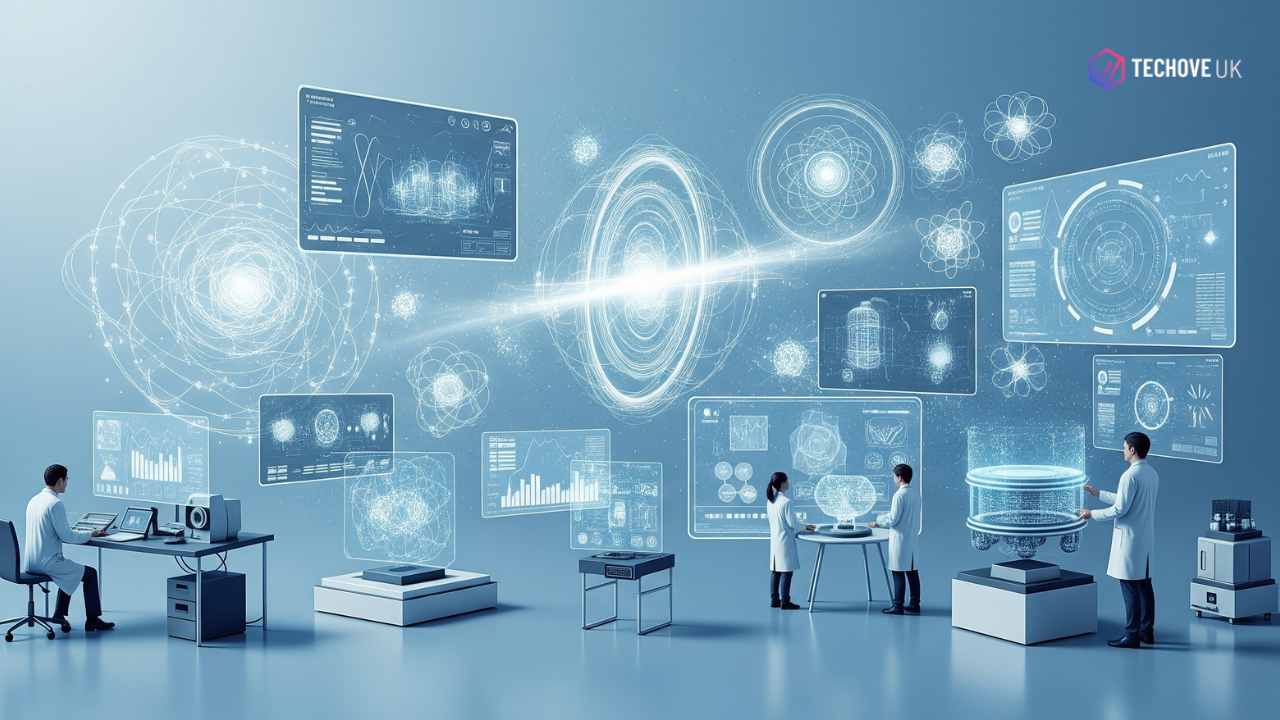
This isn’t just about science in a lab. The Commercialization of Quantum Tech is about using this science to make our lives better. The UK is becoming a world hotspot for new companies that are turning quantum ideas into real products.
What does this mean for you?
- Better Healthcare: Scientists can use quantum computers to understand diseases like Alzheimer’s or cancer in a new way. This could help them create new medicines much, much faster. It’s like having a super-powered microscope to see how illnesses work.
- A Greener Planet: Quantum computers could help us find new ways to create clean energy. They could design better batteries for electric cars or help us improve weather forecasts to prepare for climate change.
- Safer Information: Today’s security codes, which protect your bank account and online messages, could one day be broken by a quantum computer. But quantum mechanics also gives us a way to create new, unbreakable codes to keep our information perfectly safe.
This quote shows just how big this change could be. It’s not just a small step; it’s a giant leap.
The Smartest Team-Up: Quantum and AI
You’ve probably heard about Artificial Intelligence, or AI. It’s the science of making computers smart. Now, what happens when you mix the smartest computers (quantum) with the science of being smart (AI)? You get Quantum Machine Learning (QML).
If a normal AI is like a person who has read a big library of books, a Quantum AI would be like someone who has read the library, understood how every word connects to every other word, and wrote a thousand new books all at the same time. It’s a whole new level of intelligence.
This could help us solve some of the world’s biggest mysteries. But since big quantum computers are still being built, we will use a team approach for now. This is called Hybrid Quantum-Classical Computing.
Think of it like a chef and an assistant in a kitchen. The normal computer (the assistant) will do all the chopping and easy prep work. Then, it will pass the most difficult part of the recipe—the part that needs real skill—to the quantum computer (the master chef). This lets us use quantum power today, even while the technology is still growing up.
Quantum Power in Different Jobs
The quantum revolution will touch almost every job and industry. It will give people new tools to do amazing things. Here is a simple look at how some areas in the UK will change.
But Is It All Real? Answering the Doubts
It’s smart to ask questions when you hear about something that sounds like science fiction. Let’s talk about some common doubts.
Is this just a sci-fi dream that’s still far away? It’s true that a full-power quantum computer that fits on a desk is still many years away. But the journey has already started. We are in the NISQ Era, which means we have early-stage quantum computers that can already do amazing things. The UK has a 10-year plan, and the progress is happening faster than many people expected. It’s less of a dream and more of a plan that’s working.
Will a quantum computer replace my phone? Nope! You won’t be carrying a quantum computer in your pocket. Think of them as special tools for special jobs, like the huge supercomputers that forecast the weather. You and I will use the results of quantum computers—like new medicines or better apps—but we won’t own the machines themselves. They’ll be used by experts to solve huge problems.
How successful has quantum mechanics been so far? Amazingly successful! The theory of quantum mechanics is over 100 years old, and it is the foundation for much of the technology we use today. It helped us invent lasers (used in everything from DVD players to eye surgery), transistors (the building blocks of every computer chip), and MRI machines in hospitals. The new revolution is in learning how to use its strangest parts, like superposition, to build even more amazing things.
Conclusion: What Will Be The Future Of Quantum Mechanics
We started with a simple question: What will be the future of quantum mechanics?
We’ve learned that the future is bright, exciting, and full of incredible new possibilities. It’s a future where we can use the universe’s secret code to build a healthier, safer, and more amazing world. From the labs in our universities to the new companies starting up every year, the UK is at the very heart of this new age.
The journey will take us from today’s “bubbly” quantum computers to the super-stable, Fault-Tolerant Quantum Computers of tomorrow. It will be guided by new Quantum Software and clever Quantum Algorithms.
This future is not a fantasy. It is being built right now by thousands of brilliant people. The quantum age is just beginning. The only question left is: What amazing new thing do you hope it will create?

